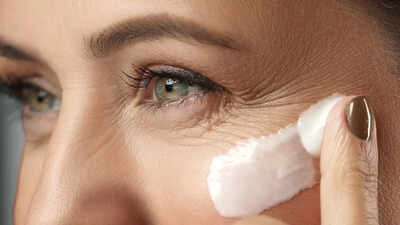
Ever feel like the quest for youth is secretly aging you? In an obsessed pursuit of an eternal glow, simple daily rituals might be doing the opposite of what we intend.We layer on serums and Zoom filters to look younger, while our bodies tick silently, unraveling under stress and screen time.
There’s a paradox: the more tech we use to halt aging, the faster life seems to age us.
Instead of revealing it all outright, let this introduction invite you to pause and wonder: what small habits might be quietly turning the clock back on your skin and soul?
Poor or irregular sleep

Chronic lack of sleep or erratic sleep schedules can quietly speed up aging. Researchers have found that inadequate sleep is linked to cellular damage and faster telomere shortening, both hallmarks of accelerated aging.
In other words, low sleep quality fuels inflammation and oxidative stress (since the body can’t properly repair itself at night), which raises the risk of age-related declines. Over time, this can show up as wrinkles, weaker immunity, and earlier onset of chronic diseases.
Chronic stress and anxiety

Long-term stress is a major but often underappreciated aging accelerant. Chronic emotional stress triggers persistently high cortisol and adrenaline levels, which over time drive inflammation and oxidative damage throughout the body. Importantly, studies find that people under chronic psychological stress “age rapidly” at the cellular. Stress also impairs mitochondria (the cell’s power plants), worsening oxidative stress and “inflammaging”
Unhealthy diet (High sugar and processed foods)

What you eat plays a huge role in aging, beyond just weight control.
Diets high in added sugars, refined carbs and ultra-processed foods drive inflammation and oxidative stress – two key aging pathways. For instance, added sugar is “an inflammatory agent… that causes oxidative stress,” and both inflammation and oxidative damage speed up cellular aging. Experts note that excess sugar intake raises chronic inflammation levels and has been linked to frailty in older adults. Likewise, ultra-processed foods tend to be laden with hidden sugars, unhealthy fats and chemical additives.
Sedentary lifestyle (Too much sitting)

A lack of regular physical activity is another forceful contributor to fast aging. Long periods of sitting or no exercise) disrupts metabolism and promotes fat accumulation and inflammation. Critically, inactivity has been linked to shorter telomeres – markers of cellular aging – in numerous studies. Over time, a sedentary habit fastens the decline of muscle, bone density and overall health, making one “biologically older” than peers.
Excessive screen time (Blue light and “Tech Neck”)

Modern screen habits may seem harmless, but can accelerate aging indirectly. Late-night exposure to screens (phones, tablets, TVs) bathes you in blue light that suppresses melatonin and disrupts circadian rhythm. Harvard researchers report that even dim light in the evening can throw off your body clock, making sleep harder. Since poor sleep itself accelerates aging, chronic late-night screen use is doubly harmful. In addition, constantly looking down at devices (“tech neck”) strains the spine and repeatedly folds the neck skin, potentially causing early wrinkles and posture-related wear over time.

 20 hours ago
55
20 hours ago
55




























 English (US)
English (US)